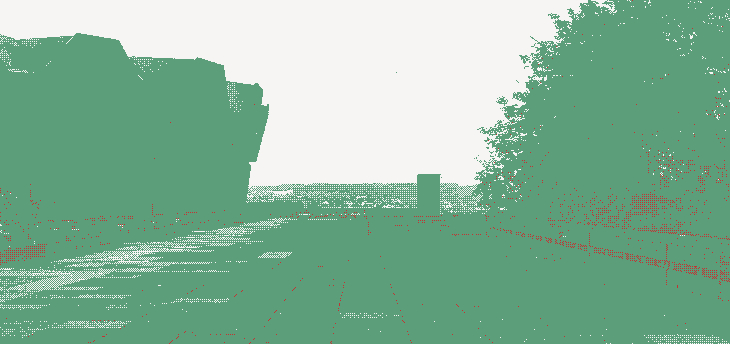
Tülin Fidan
Sven Bergmann
Anja Binkofski
⚠️ This case is cancelled.
We consider corrosion as the process of becoming-ruin and invite you to think with us through corrosion as a condition of becoming and of before (before failure, before disaster, before end).
The interest in thinking through corrosion emerges from our research topics: a) from dumped munitions in the North Sea after WWI and WWII. 80-100 years later the metal shells corrode and explosives like TNT leak out, b) from shiprecycling, where the ships at the inbetween of air and sea are corroding and their toxic materials are exposed. In this case, we do not want to focus primarily on hazardous substances themselves, but rather think with the storage facilities, containers, and case-ings. Corrosion transforms these (supposedly safe) containers. What does corrosion mean under such terms? What does becoming-ruin mean in the face of inevitable ends, tipping points and damaged worlds?
We want to think about these questions in terms of:
- Temporalities: Corrosion as a slow process, leading to uncertainty and slow disasters
- Relationalities: Corrosion as reaction to environments and therefore undermining the container logic (they're hazardous inside but safe outside)
- Maintenance/Care: Corrosion as change/becoming, maintenance and/or care as practices of living with ruins
Bringing this case to the Ruhrgebiet as a former highly industrialized region discusses it not as a post-industrial region but as still in the process of industrial unbecoming.
In our case we might ask, how do different communities (toxicologists, engineers, technicians, conservators, practitioners and craftspeople in maintenance, infrastructure, and even in everyday life) deal with corrosion differently? What maintenance practices exist in the Ruhr region for corroding casings? What do they reveal about living in the "before"? How does multispecies life interact with corroding containers? How do we curate ongoing relationships rather than static objects? How do we exhibit becoming-ruin rather than become-ruined?
We want to explore these issues in Bochum in the form of an excursion to (post-)industrial places, following an initial online preparation meeting (in January).
Our base for the day will be the Bergbau Museum Bochum (tbc). Additionally we will have one or two sites (e.g. Stahlwerke Bochum, Zeche Bochum, local research site), where we will use the methods of nosing around, (sensory) walks, audio and visual documentation, and participant observation to get a feel for the area.
During our case day we will move between different locations. Participants should be willing to engage with all program elements, including outdoor activities. Please reach out if you have questions about accessibility or need individual accommodations to participate fully.Our final product, which we will present on the third day of the conference, will be an interactive map, showing everyone’s research sites connected to corrosion, as well as our new found sites of corrosion in Bochum from the second day.
The initial preparation meeting will include sharing perspectives and insights (text or multimodal) connected to our case - these might come from your research, experiences, or curiosity about the topic - and possibly first drafts for the interactive map.
To express your interest in our case please send a short abstract with your initial thoughts and reflections on the above stated questions, including: What does becoming-ruin mean to you? Where do you see potential connections between corrosion and your interests or expertise? Additionally, please send a short bio. Please indicate if you are doing research in the Ruhr area.
If you have any questions regarding your application or participation, please write to Tülin Fidan (t.fidan@dsm.museum).